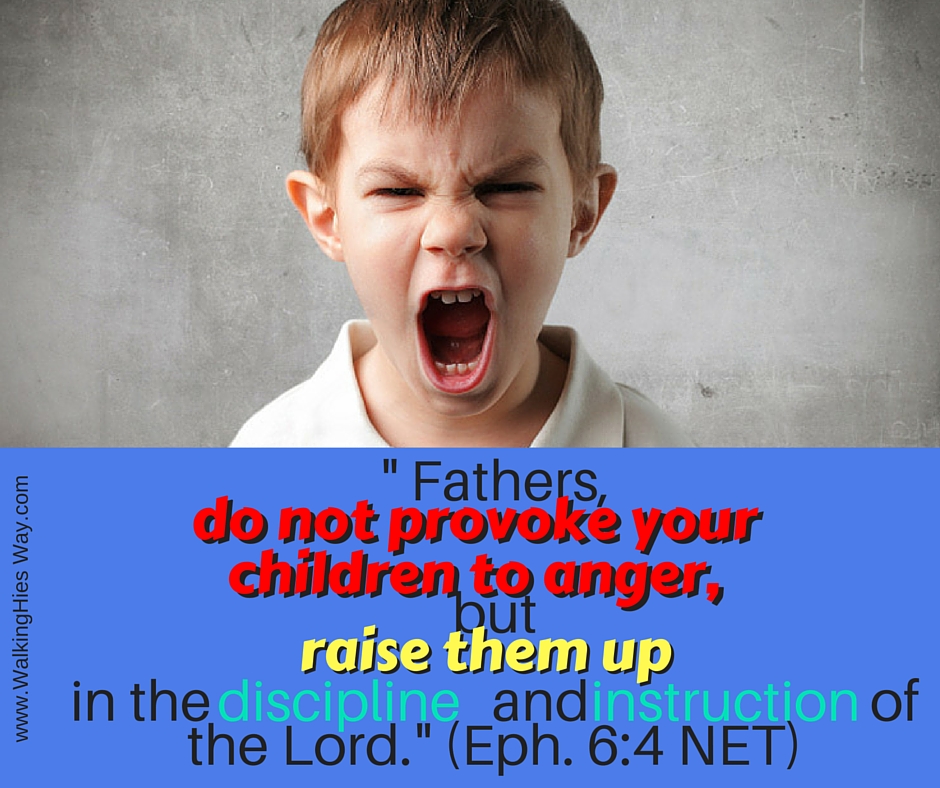 Eph 6:4 “Fathers, do not provoke*| your children to anger,”
Eph 6:4 “Fathers, do not provoke*| your children to anger,”
It is not uncommon for children to have bitter anger for the hurt and rejection received from their fathers; however, very relationship is a two–way street (father to son and son to father).
The guidelines begin with commands for children to obey and to honor their parents (Eph 6:1–-3), even when they feel hurt.
Following the injunctions to children, God gives special instructions to parents. In first–century Roman society, fathers were granted patria potestas, or the authority as the head of the house, which included unlimited power over their children to make them obey without question.
Fathers learn how leaders use anger and intimidation to get their will, and then they use the same tactics at home.
Few Christian parents know this type of authority is prohibited among believers. Jesus taught His disciples how to lead by serving others: “You know that those who are considered rulers over the Gentiles lord it over them, and their great ones exercise authority over them. Yet it shall not be so among you; but whoever desires to become great among you shall be your servant. And whoever of you desires to be first shall be slave of all. For even the Son of Man did not come to be served, but to serve” (Mark 10:42–-45).
Paul wrote, literally, “Stop provoking your children to anger, lest they become discouraged” (Col 3:21). The negative aorist command in our verse means “never exasperate or make angry.” Discouragement means to be “broken in spirit” or “disheartened.”
Any approach to discipline that attacks a person’s spirit or soul (perceived as their self–worth) is cruel and damaging. It is not the child’s spirit, but the child’s selfish, self–centered will that must be broken—-without destroying the spirit of the child.
What kills a child’s spirit are feelings of rejection, embarrassment, criticism, and unreasonable anger. Discipline is not punishment; it is a lesson to learn.
Children are provoked to anger because parents use anger as a technique to manipulate, resulting in the feeling of rejection. Parents believe the child will be afraid and cease his or her unwanted behavior.
The more anger, loud voices, empty threats, and embarrassing name calling are employed to get a response from the child, the angrier and more resistant the child will become. Anger provokes an angry response and rebellion.
“Dear God, a parent’s job is complicated and difficult. Help me learn and practice Your principles of love and respect while allowing You to teach me to be faithful in correcting my children according to Your word.”
